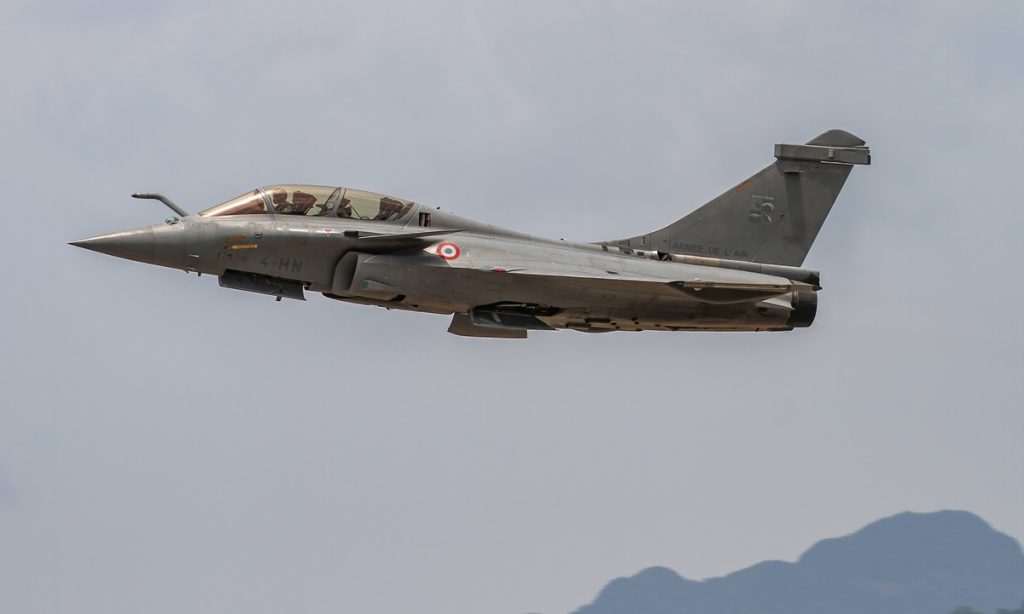Experts reject French intelligence's hype over Chinese embassies sowing doubts over Rafale jets

Chinese military experts rejected on Monday the latest claims by French intelligence that "China used embassies to undermine sales of French-made Rafale jets" following the India-Pakistan conflict in May this year. A Chinese Foreign Ministry spokesperson said on Monday that she is not aware of the situation, when asked about the matter.
The Associated Press (AP) reported on Sunday that "findings from a French intelligence service say defense attachés in China's foreign embassies led a charge to undermine Rafale sales, seeking to persuade countries that have already ordered the French-made fighter — notably Indonesia — not to buy more and to encourage other potential buyers to choose Chinese-made planes."
The findings were shared with AP by a French military official on condition that the official and the intelligence service not be named, according to the US media report.
Asked by AP to comment on the alleged effort to dent the Rafale's appeal, the Ministry of National Defense said: "The relevant claims are pure groundless rumors and slander. China has consistently maintained a prudent and responsible approach to military exports, playing a constructive role in regional and global peace and stability," according to the AP report.
In response to a reporter's question about the AP's report, Chinese Foreign Ministry spokesperson Mao Ning said on Monday that she is not aware of the situation.
Zhuo Hua, an international affairs expert at the School of International Relations and Diplomacy at Beijing Foreign Studies University, told the Global Times on Monday that this appears to be yet another organized smear campaign against China's diplomacy.
"This wave of disinformation deliberately links social media activity to Chinese state behavior and forcibly associates China's normal defense exchanges with other countries to the difficulties facing sales of the Rafale fighter jet," Zhuo said.
Such claims ignore China's long-standing self-discipline in arms exports, and China's consistent and firm support for Europe's strategic autonomy. The real goal is to interfere with or even sabotage the stable development of China-Europe relations, Zhuo said.
During the India-Pakistan clashes in May, Reuters, citing one US official who spoke on condition of anonymity, reported on May 8 there was high confidence that Pakistan had used the Chinese-made J-10 aircraft to launch air-to-air missiles against Indian fighter jets —bringing down at least two.
Another official said at least one Indian jet that was shot down was a French-made Rafale fighter aircraft, according to Reuters.
At the recent 55th Paris Air Show, the Chinese J-10CE fighter jet, which has recently achieved remarkable success in foreign military air combat operations, has become a top focus of international media attention.
Its appearance alongside France's Rafale fighter jet has sparked lively discussions, with media zeroing in on the question: "Which is superior, the J-10CE or the Rafale?" Commenting on this question, Wu Jiwei, a spokesperson at the Aviation Industry Corporation of China (AVIC), told the Global Times that both aircraft are advanced fighters on the world stage, and he expressed hope that all cutting-edge fighter jets from different countries could contribute to safeguarding global peace.
China's Foreign Ministry and Ministry of National Defense have never made any official comments on the performance of fighter jets during the India-Pakistan conflict, Fu Qianshao, a Chinese military affairs expert, told the Global Times on Monday.
"For the French to accuse our diplomatic institutions of smearing the Rafale is simply not in line with the facts," Fu said. "The global media is well aware of the situation and can judge for themselves whether it's a smear campaign or a reflection of reality."